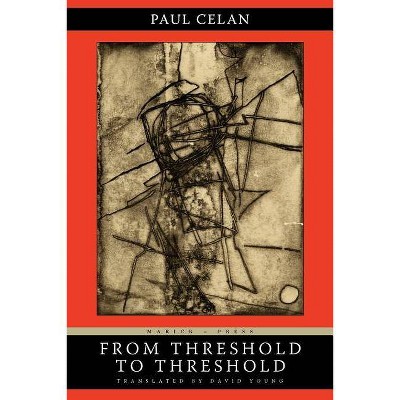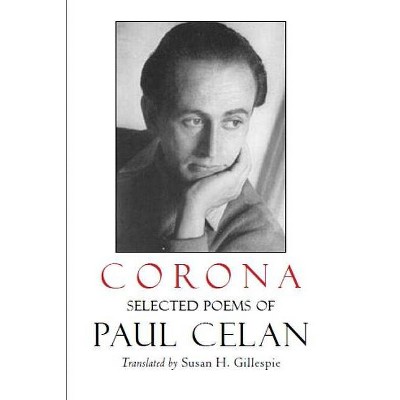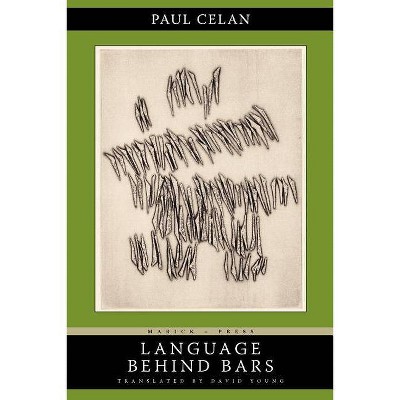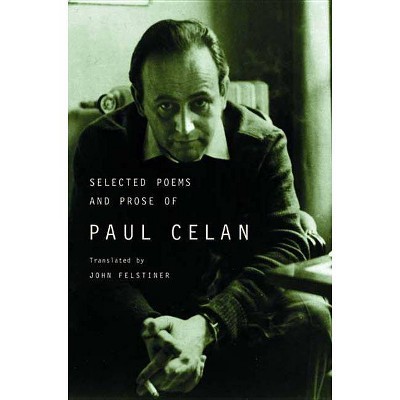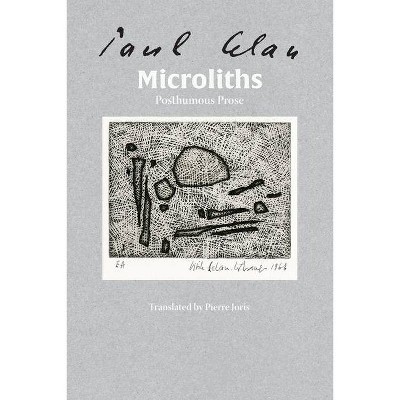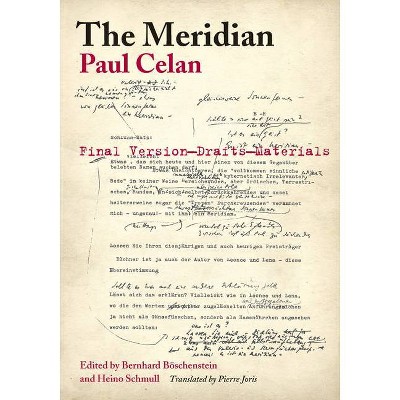Memory Rose Into Threshold Speech - by Paul Celan (Hardcover)
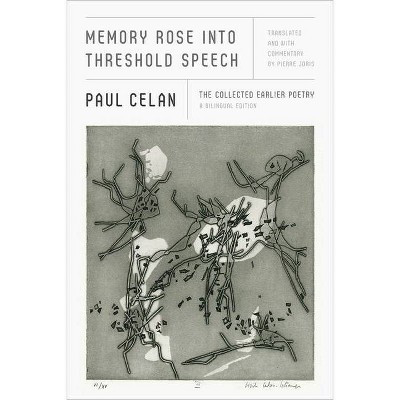
Similar Products
Products of same category from the store
AllProduct info
<p/><br></br><p><b> About the Book </b></p></br></br>Memory Rose into Threshold Speech gathers the first four books of poet Paul Celan's oeuvre, written between 1952 and 1963.<p/><br></br><p><b> Book Synopsis </b></p></br></br><p><b><i>Memory Rose into Threshold Speech </i></b><b>gathers the poet Paul Celan's first four books, written between 1952 and 1963, which established his reputation as the major post-World War II German-language poet.</b> <p/>Celan, a Bukovinian Jew who lived through the Holocaust, created work that displays both great lyric power and an uncanny ability to pinpoint totalitarian cultural and political tendencies. His quest, however, is not only reflective: there is in Celan's writing a profound need and desire to create a new, inhabitable world and a new language for it. In <i>Memory Rose into Threshold Speech</i>, Celan's reader witnesses his poetry, which starts lush with surrealistic imagery, become gradually pared down; its syntax tightens and his trademark neologisms and word formations increase toward a polysemic language of great accuracy that tries, in the poet's own words, to measure the area of the given and the possible. <p/>Translated by the prize-winning poet and translator Pierre Joris, this bilingual edition follows the 2014 publication of <i>Breathturn into Timestead</i>, Celan's collected later poetry. All nine volumes of Celan's poetry are now available in Joris's carefully crafted translations, accompanied here by a new introduction and extensive commentary. The four volumes in this edition show the flowering of one of the major literary figures of the last century. <p/>This volume collects Celan's first four books: <i>Mohn und Gedächtnis (Poppy and Memory)</i>, <i>Von </i><i>Schwelle zu Schwelle (Threshold to Threshold)</i>, <i>Sprachgitter (Speechgrille)</i>, and <i>Die Niemandsrose</i><i> (NoOnesRose)</i>.</p><p/><br></br><p><b> Review Quotes </b></p></br></br><br><p><b>For half a century Pierre Joris has been living with the poetry of Paul Celan. With the publication of <i>Breathturn into Timestead </i>and <i>Memory Rose into Threshold Speech </i>his life's task is completed</b>: a rendering into English of the entire German oeuvre of one of the great poetic presences of the twentieth century. Joris's translations are supple, lively, and <b>as close as we will ever get to the sense of a body of poetry that continually challenges the boundaries of language</b>. --J. M. Coetzee, winner of the Nobel Prize in Literature <p/>Celan's poetry is elliptical, ambiguous, resisting easy interpretation. Perhaps for this reason, it has been <b>singularly compelling to critics and translators</b>, who often speak of Celan's work in quasi-religious terms . . . Pierre Joris, in the introduction to "Memory Rose Into Threshold Speech" (Farrar, Straus & Giroux), his new translation of Celan's first four published books, writes that hearing Celan's poetry read aloud, at the age of fifteen, set him on a path that he followed for fifty years . . .<b> Joris's extensive commentary is a gift to English readers</b>. --Ruth Franklin, <b><i>The New Yorker</i></b> <p/>Compiling Celan's first four books into one volume highlights his growth as a writer and thinker, paring language to its essentials. --<b><i>The New York Times</i></b> <p/>What a privilege to read Paul Celan, one of the great voices of contemporary poetry, through Pierre Joris. --Katherine Hedeen, <b><i>Kenyon Review</i></b> <p/><b>This ambitious bilingual edition completes Joris's herculean effort</b> to translate all of Celan's poetry into English . . . Joris's introduction and commentary provide useful historical and literary context. This admirable translation presents the early work of an eminent German language postwar poet to a new audience. --Publishers Weekly</p><br><p/><br></br><p><b> About the Author </b></p></br></br><p><b>Paul Celan</b> was born in Czernowitz, Bukovina, in 1920, and is widely considered to be one of the most innovative poets of the twentieth century. A German-speaking Jew, he was sent to a forced labor camp during World War II. Celan settled in Paris in 1948, where he lived and wrote until his death in 1970. <p/><b>Pierre Joris </b>has written, edited, and translated more than sixty books, including poetry, essays, and anthologies, such as<i> Fox-trails, -tails, & -trots (Poems & Proses)</i>; Paul Celan's <i>Microliths They Are, Little Stones: Posthumous Prose</i>;<i> Arabia (not so) Deserta</i>; and, with Adonis, <i>Conversations in the Pyrenees</i>. He is the editor and translator of Paul Celan's <i>Breathturn into Timestead: The Collected Later Poetry</i>. In 2005 Joris received the PEN Award for Poetry in Translation for his translation of Celan's <i>Lichtzwang (Lightduress)</i>, and in 2020 he received Luxembourg's Batty Weber Prize for lifetime achievement.</p>
Price History
Price Archive shows prices from various stores, lets you see history and find the cheapest. There is no actual sale on the website. For all support, inquiry and suggestion messagescommunication@pricearchive.us
